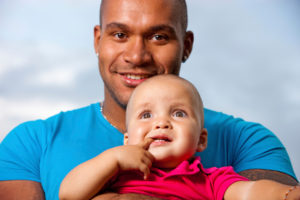
November is National Adoption Month, when many organizations and government agencies celebrate adoptive families and raise awareness of the need for more families to adopt children, particularly those in foster care. If you are considering adding a child to your family through adoption, you may be wondering what options are available to you.
You should begin the process by researching the types of adoption to find one that is the best fit for your family. All adoptions have some things in common, such as a home study and legal procedures. However adoptions vary in other important ways:
Foster Care Adoption
Hundreds of foster children are waiting to be adopted into permanent homes. Children who are eligible for adoption from foster care may have been abused or neglected by their birth parents. If parental rights have been terminated, the consent of the birth parents is not needed for adoption. Foster children of all ages are available, and there are sibling groups who need to be adopted together. Many children with special needs also need homes. This is the least expensive adoption choice, because many of the costs are covered by the state.
International adoption
Children who are orphans or have been abandoned by their parents in many countries are waiting for adoption by U.S. families. International adoption can take longer than other types of adoption. You must work with an agency, be approved by the country, have a child matched, visit the child (in most situations), and meet waiting periods before bringing your child home. Many parents find this type of adoption to be worth the wait.
Domestic agency adoption
This is the model most people think of when discussing adoption. You apply to an agency that decides whether to approve you. Then you are selected by a birth mother who is expecting a baby. The adoption is finalized after the baby is born and state requirements are filled. You bring home a newborn baby.
Private or Independent Adoption
Adoptive parents work directly with a birth mother (often with the help of an attorney or adoption facilitator) to agree to an adoption. An agency is sometimes involved to manage the adoption but does not match the birth mother to the adoptive parents. This can be the fastest path to adoption but must be done carefully with legal advice from a knowledgeable family law attorney.
You may have heard the term “open adoption.” This refers to the relationship between the birth parent(s) and adoptive parents after the adoption. In private and domestic adoptions, it is possible to maintain communication after the adoption. Depending on the agreement, adoptive parents may send updates to the birth parents, and the birth parents may spend time with the child.











